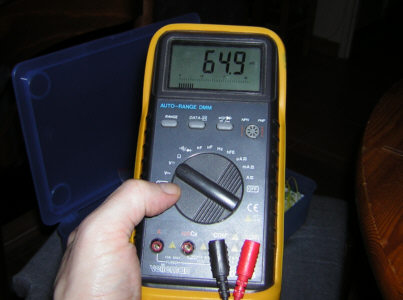
If there is an absolutely essential device for those who tinker, it is the multimeter!
Input impedance (or resistance)
It is generally much greater than 1 MB for digital devices and around 20 kOhms/V for analog devices. Remember that a high value of the input resistance of a voltmeter is always preferable. A low value causes a non-negligible intrusion in the circuit under measurement, which can modify its behavior and cause the display of a totally fanciful value.
Analog or digital?
I see some who are smiling... However, if you take measurements with a digital multimeter on a low level audio realization (high gain preamp for example), you may hear strange noises when you make the measurement on said achievement. This noise is caused by the digital / analog converter of the multimeter (yet battery powered, isn't it), and can in some cases be rather annoying. In this context, an analog device will disturb your production less. Another reason for using an analog device is to monitor small variations in voltage or current, or to assess a trend. Things almost impossible to obtain with a digital camera. Another advantage of the analog multimeter: that of measuring high voltages on a source with a very high output impedance. Example with a digital device with an input impedance of 1 MO on 2000 V caliber, compared with an analog device with an input impedance of 40 MO on 2000 V caliber. In your opinion, which of the two devices will display the fairest value?
Automatic calibers
If you opt for a digital multimeter with automatic gauges, make sure you can disengage the automatic mode and switch to manual mode. The automatic mode can be practical when you are not sure in which range of values the parameter to be measured will be. But it can be very painful for some measurements. I can cite as an example the potential impossibility of making certain voltage measurements on sources that can only deliver a few uA (example: measurement of a voltage delivered by a LED when it is lit, I had this measurement problem with two different multimeters). And I'm not even talking about the additional time that the device takes before displaying the expected value. For a single measurement, it's fine, but for a series of measurements, it's
Diode test and Transistor test function
These are very practical functions for those who want to troubleshoot an electronic assembly. The presence of such test functions is not essential, but I recommend them, even if the measurements are sometimes made a little lightly (measurement of the gain of a transistor with a single value of the base current, for example) .